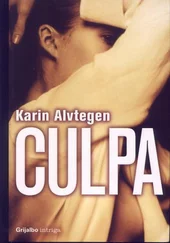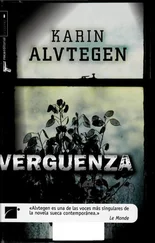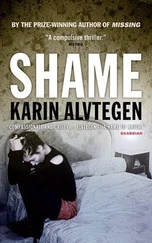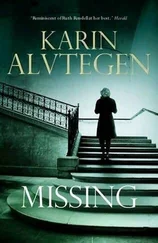She was still standing to one side behind his back and he sensed that she was waiting.
‘Shall I move you a little?’
He concentrated but his finger refused to respond, even though his body was begging to be moved. Not until she turned and left did he see out of the corner of his eye how his finger gave a little twitch. He heard the door close and fled back into his memories.
How much had been made clear? He didn’t know. Perhaps what the eye saw and the ear heard could be distorted, but never the experience. Everything fallen into an oblivion that still carved tracks. The neighbourhood of his childhood was long gone, but was immortalised in several of his early novels. Despite poor circumstances it had been a good place to grow up. Constant chatter about the weather in the stairwell and from the windows. The games that changed with the seasons, always outside because of the crowded living conditions. Skating in the winter on rinks they flooded themselves. The gigantic snow caves that turned into forts during the snowball fights. The toboggan runs where red-cheeked kids with chapped lips slid on sheets of cardboard and the seats of their trousers. When the snow melted the games began; treasured marbles constantly changed owners. He would be rich one evening and destitute the next. He remembered playing rounders and games with home-made footballs of paper and string. In the summertime swimming in Årstaviken and chasing after the water-sprinkler truck that kept down the dust between the cobblestones. His envy of those who were lucky enough to go to holiday camp or had relatives in the countryside. The autumn, when they all got together again. The season of hide-and-seek and ghost stories.
He remembered the smells. Always the smells. The aroma of dinner and fresh-baked bread, the rank smell from the rubbish bins and outdoor toilets in the courtyard. The smell of sweaty coats drying in the dark hallways. Horse-shit on the streets and newly chopped wood. The fleeting smell of freshly washed sheets in the drying loft.
The shops, all with their distinctive smells: the fishmonger, the butcher, the bakery, the wood and kerosene cellar. And all the sounds. In the streets the noise from cars and trams, pushcarts, iron-shod hooves and clattering wheels. The new and the old in a struggle for space.
He remembered the silent winter, when sound was absorbed by the snow and the grown-ups stayed indoors. Huddled in their tiny flats and then released in early spring when everything returned.
The radio. That magical box around which everyone gathered and which conjured away the walls, opening the room to the wide world.
Fill your head with knowledge, boy, it’s the only thing that can take you out of here.
As a little boy those words had scared him; he didn’t want to go anywhere. He wanted to stay there with Mamma and Pappa where things were familiar, with all the safe routines and monotonous repetition. He had wondered why they wanted to get rid of him. Why they were so eager to drive him away from the life which in the next breath they were so quick to praise. Hard work, fastidiousness and order. Unity gives strength. High morals and a conscientious life, a bust of Hjalmar Branting, Sweden’s first Social Democratic prime minister, demonstrated their class affiliation from its place of honour on the bureau. One of the few objects in their home that was not utilitarian. So many times his memory had furnished this place. The kitchen, where his mother reigned until evening, and a bed made up for Pappa on the pull-out sofa. The room inside, which during the day stood empty but where at night he and his mother and his two-years-older sister slept. She was the one who had a good head for studying, but no notice was ever taken. Not even when her teacher took the time to knock on their door one evening to try and convince his parents to let the girl continue her studies after elementary school. They had stubbornly stood their ground. Axel was the one in their family who was going to study, and that had been decided long ago. He was going to be an engineer, a profession with a future. His sister had been filled with a bitterness that was constantly nurtured in the years that followed. She never forgave him, even though the choice had not been his.
The sun had reached past the window-sill and an irritating shaft of light struck him in the face. His eyes, which during the first year after the stroke would blink when he wanted them to and not merely when necessary, closed and left him in a reddish-purple darkness.
The fact that his parents had chosen engineering, of all things, had astonished him. Numbers had never been his allies. Nor was he particularly practical by nature. God knew that he tried; in his eagerness to impress his father he had done everything to become like him. His father’s indulgent glance when his hand demonstrably lacked talent for the hammer when they were building the shed at Bliss. Doggedly his father pulled out the misplaced nails and simply put them where they were supposed to have gone. Never a harsh word, only the silent message that practice made perfect and that one should never give up. Hard work, fastidiousness and order. At five thirty every morning except Sunday the alarm clock would ring, because at seven his father started work at the sugar mill. His mother did her part by taking the tram twice a week all the way to Östermalm, where she cleaned a flat. And it was from that family’s voluminous bookshelves that the treasures were gleaned, carefully smuggled out and then returned the following week – novels by Jules Verne, Alexandre Dumas and Jack London. He lost himself in the meandering stories, let himself be whisked away by the tales and continued the journey in his own words when he finished reading the books. His exercise book and loose sheets of paper were filled with fantastic stories about heroes and adventures. Both his mother and father read what he wrote, commenting on and evaluating his penmanship and spelling, but they never said a word about the content. The double message was imprinted early on – you in particular are expected to rise above the limits of your origin; but even so don’t believe that you’re anything special. When his stories finally were deemed far too verbose, the source of their inspiration stopped appearing in his home. The books that inspired his imagination, whose pages dripped with colourful fantasy, remained on the shelves in Östermalm; instead reference books and technical literature with bone-dry text were borrowed in an effort to usurp. All to prepare him for the day when he would take the exam for one of the free places at the Higher General Secondary School for Boys in Södermalm.
The door behind him was opened, but there was no knock this time. His eyelids refused to obey his command and remained as they were, a shield against the glaring sunshine. Only when he sensed the wheelchair moving and he ended up in the shade did they open, and he saw that it was Jan-Erik who had come.
‘Hi, Pappa.’
Once again he felt the towel wipe his chin, where the drool still ran; the itching was driving him crazy. Jan-Erik’s hand was tentative, not firm like that of the attendants. It revealed that his son was just as uncomfortable in this situation as he was, that he experienced it as equally unnatural.
‘Would you like to lie down for a while? They said you’d been sitting up all morning.’
With all his strength he concentrated and finally managed to lift his little finger.
‘Okay, I’ll just go and fetch someone to help me.’
Out of the corner of his eye he saw Jan-Erik disappear. He realised he ought to be grateful, surely his son’s visit was out of duty and not of his own free will, and yet he couldn’t bring himself to feel grateful. He had never really understood his son, and to be honest he wasn’t even sure that he liked him. His total lack of ambition. Born with every opportunity served up on a platter, yet he had never made use of a single one. Only hopped about half-heartedly without purpose or goal, without ever taking the helm. Axel himself had been born without any opportunities at all, but his parents’ toil and his own indomitable will had propelled him forward. Against all odds. He remembered the shame he felt when he failed the scholarship exam, and his parents’ disappointment. His mother and father, whose motto was ‘Never give up’, had not let themselves be deterred. Over the next eight years they had endured constant hardship to finance his studies to become a graduate of the secondary school, all to open the doors to the Royal Technical College where the final goal hovered like a mirage: his degree in civil engin eering. No sacrifice had been too great. Both his parents had two jobs, saving every krona to be able to afford the tuition fees. Axel himself had spent every waking moment fulfilling their ambitions, trying to convince himself that those ambitions were his as well. But the school had been a foreign environment in which he slowly changed. Pupils from his social background were rare, and to get along in that setting he was forced to adapt. Here conflicts were not solved with fists like in the back courtyards; here it was always language that brought superiority. Unlike his own environment, the goal was to distinguish himself, to believe seriously that he was somebody. Difficulties arose when he had to switch back and function in his own neighbourhood, where the old rules applied.
Читать дальше












